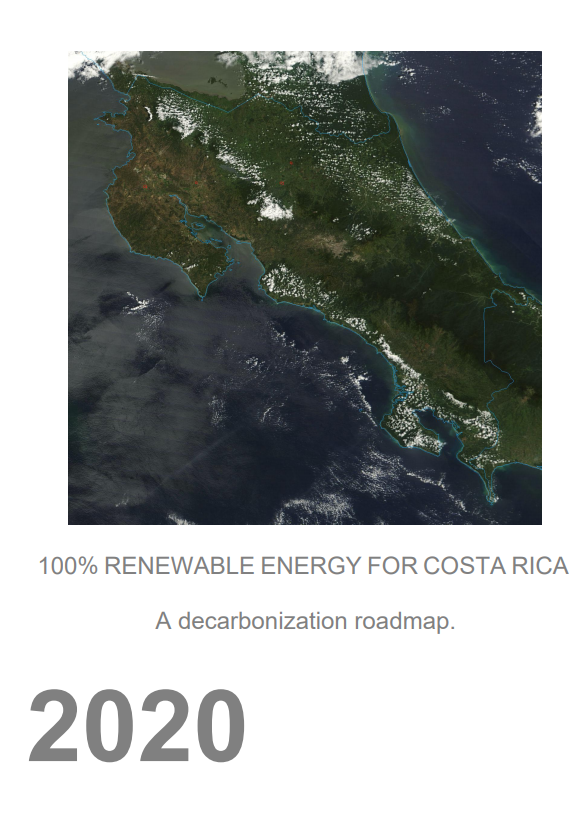100% Renewable Energy for Costa Rica – A Decarbonisation Roadmap

Excerpt
100% Renewable Energy for Costa Rica: Costa Rica is already a global leader when it comes to ensuring energy production comes from renewable energy sources. With a 98% share of renewables in its electricity matrix and solid achievements to prevent deforestation—around 25% of the country’s land area is in protected National Parks and other protected areas—Costa Rica is at the forefront of environmental sustainability, climate action and driving the renewable energy transition. Wanting to go even further, Costa Rica has adopted the National Decarbonization Plan in February 2019 to achieve a net-zero emissions economy by 2050, in line with the objectives of the Paris Climate Change Agreement. This report, commissioned by the World Future Council and La Ruta del Clima/Costa Rica, and financed by the One Earth Foundation USA to provide input into Costa Rica’s ambitious plan to achieve 100% renewable energy.
As the Costa Rican President, Carlos Alvarado Quesada, noted during the launch of the Plan, “Decarbonization is the great challenge of our generation and Costa Rica must be among the first countries to achieve it, if not the first.” The biggest challenge will be to increase the share of renewables in energy consumption. More than 60% of energy consumption in the country is from petroleum derivatives. 64% of Costa Rica’s emissions come´from energy use, and more than two thirds of that is from transport. A critical part will thus be to
decarbonize the transport sector. The growing demand for personal vehicles, the majority of which run on petrol, is keeping a high share of fossil fuels in the country’s energy consumption. The Decarbonization Plan aims to have 70 percent of public transport powered by electricity in 2035—and the whole fleet by
2050.
This study aims to complement these efforts and show pathways to 100%RE in order to meet the
decarbonisation challenge.



